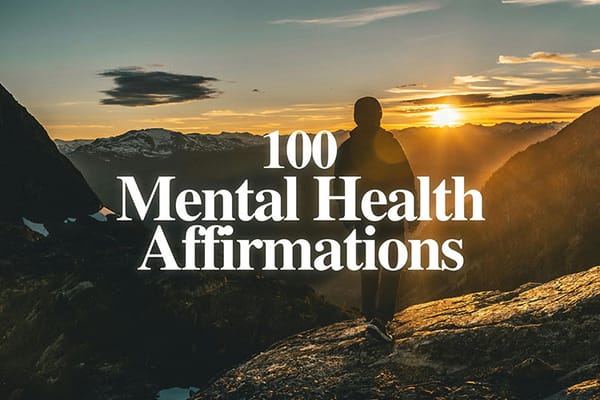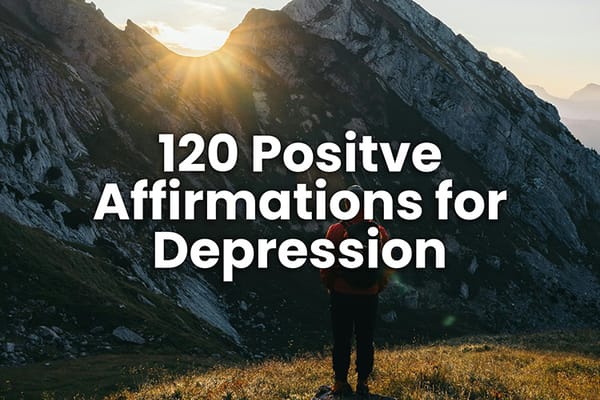May is Mental Health Awareness Month, a time dedicated to breaking down the stigmas associated with mental health issues and promoting strategies that improve our mental well-being. This annual observance is a reminder of the importance of mental health in everyone's life.
Key Mental Health Insights
To fully understand the scale and impact of mental health challenges among U.S adults, take a look at data gathered by Forbes Health:
- In 2022, nearly one in four U.S. adults (23.1%) reported experiencing a mental health condition.[1]
- A significant 6% of U.S. adults suffered from a severe mental health condition in 2022, which includes disorders like psychosis, bipolar disorder, or severe anxiety and eating disorders that notably hinder daily functioning.[1]
- Additionally, 32.9% of U.S. adults faced both a mental health issue and substance abuse in the same year.[1]
- Around 5.2 million veterans were reported to have a behavioral health condition in 2022.[2]
- Suicide ranked as the second leading cause of death among U.S. children aged 10 to 14 in 2020, following accidental injury.[3]
- The global economic impact of depression and anxiety is significant, resulting in a loss of approximately $1 trillion in productivity annually.[4]
- In 2021, over half of U.S. women (51.7%) accessed mental health services, compared to only 40% of men.[5]
- Young adults between 18 to 25 years reported the highest prevalence of mental health issues (33.7%) and serious mental illness (11.4%) among age groups, surpassing adults aged 26 to 49 years.[5]
- Women are more frequently diagnosed with serious mental health conditions than men, with rates of 7% for women compared to 4% for men.[5]
- The proportion of U.S. adults receiving mental health treatment increased from 19.2% in 2019 to 21.6% in 2021.[6]
These numbers are not just statistics—they represent millions of lives touched by mental challenges. This Mental Health Awareness Month, let's focus on incorporating beneficial habits into our daily routines that can significantly improve our mental health.
Through this article, we aim to explore five essential habits that anyone can adopt to not only cope with mental health challenges but also thrive amidst them. Let's dive into these life-enhancing habits and take a step towards a more mindful, connected, and positively affirmed life.
Habit 1: Prioritize Self-Care
What is Self-Care?
In the context of mental health, self-care refers to deliberate activities we engage in to provide our physical, mental, and emotional well-being with care and attention. It’s about being as kind to ourselves as we would be to others. Self-care is vital for building resilience against stressors in life that we can't eliminate.
Self-Care Activities to Try:
- Meditation: Start with just a few minutes a day. Apps or guided videos can help beginners ease into the practice.
- Journaling: Set aside time daily or weekly to reflect on your thoughts and feelings. This can serve as a therapeutic outlet for emotions.
- Engaging in Relaxing Hobbies: Whether it's painting, gardening, or playing music, hobbies can divert your mind from stress and channel it into something productive and enjoyable.
Benefits of Self-Care:
Engaging in self-care activities has a host of benefits, including:
- Improved Mood: Activities like exercise release endorphins, and natural mood lifters, which can reduce feelings of depression and anxiety.
- Reduced Stress: Regular self-care helps to decrease the overall levels of stress by maintaining a routine and keeping your mental health in check.
Habit 2: Establish a Digital Detox Routine
Why Reduce Digital Consumption?
Our digital devices can offer incredible benefits, but excessive use can lead to issues like sleep disturbances, heightened anxiety, and reduced physical activity. In an age where being always "on" can leave us feeling drained, it’s crucial to step back and reassess our digital consumption.
Steps to Establish a Digital Detox Routine:
- Set No-Phone Hours: Particularly around bedtime or during meals, designate times when digital devices are put away.
- Create Tech-Free Zones: Establish areas in your home where electronics are not allowed, such as the bedroom or dining room, to encourage interpersonal communication and relaxation.
- Regular Breaks: If your work or school requires heavy digital use, make sure to take regular breaks to reduce eye strain and mental fatigue.
Benefits of a Digital Detox:
- Better Sleep: Reducing screen time, especially before bed, can help your mind unwind and contribute to a better night's sleep.
- Increased Focus and Productivity: Less time spent scrolling through social media means more time for focused work and meaningful interactions in real life.
By integrating these habits into your daily routine, not only during Mental Health Awareness Month but throughout the year, you can significantly enhance your mental and emotional health. Each step, from mindful self-care to conscious reduction in digital consumption, paves the way for a healthier, more fulfilling life.
Habit 3: Connect with Others
The Importance of Social Connections:
Human beings are inherently social creatures. Building and maintaining strong connections with others is not just beneficial; it’s essential for our mental health. These relationships provide support, reduce feelings of loneliness, and increase our sense of belonging and purpose.
Ways to Make Connections:
- Join Community Groups: Whether it’s a sports league, a book club, or a volunteer organization, getting involved in your community is a great way to meet new people with similar interests.
- Participate in Online Forums: For those with niche interests or who prefer digital communication, online communities can be a great place to connect with like-minded individuals globally.
Virtual Alternatives for Those with Social Difficulties:
- Virtual Meetups: Many groups offer virtual gatherings, allowing people to participate from the comfort of their home and gradually ease into social interactions.
- Social Apps: Utilize apps designed to connect people, whether through gaming, learning languages, or discussing specific topics, providing a structured way to engage with others.
Habit 4: Practice Mindfulness
Introduction to Mindfulness:
Mindfulness involves being fully present in the moment, aware of where we are and what we’re doing, without overly reacting or becoming overwhelmed by what’s going on around us.
Simple Mindfulness Practices:
- Mindful Breathing: Focus on your breath to anchor yourself in the present moment.
- Mindful Eating: Eat slowly and savor every bite, appreciating the flavors and textures of your food.
- Positive Affirmations: Incorporating positive affirmations into your daily routine can help shift your mindset towards a more present and mindful state, contributing significantly to your overall mental health.
Habit 5: Seek Professional Help When Needed
Normalizing Mental Health Support:
It’s crucial to normalize the process of seeking help for mental health issues, just as one would for a physical ailment. Getting professional help should be seen as a proactive step towards better health, not a sign of weakness.
Resources for Finding Professional Help:
- Therapy and Counseling: Provide links or directories where readers can find local mental health professionals.
- Online Therapy Platforms: For those who prefer privacy or remote options, online therapy can be a flexible alternative.
Advocating for Regular Mental Health Check-ups:
Just like regular physical check-ups, mental health check-ups can play a vital role in maintaining overall well-being. They offer a chance to discuss any concerns with a professional and monitor mental health conditions before they become more serious.
We encourage you to take small, manageable steps toward integrating these habits into your daily life. Remember, even minor changes can lead to significant improvements in your mental health and overall quality of life. You are not alone on this journey; there is strength in seeking support and building a community that uplifts everyone involved.
Call to Action
If you found this article helpful, please share it with friends, family, or anyone you believe could benefit from these habits. Engage with mental health communities online to continue learning and growing together. Your story and your progress can inspire others to take that all-important first step towards better mental health.
Together, let's break the stigma surrounding mental health discussions and support each other in our journeys towards a happier, healthier life. Every step forward, no matter how small, is a step towards positive change.








